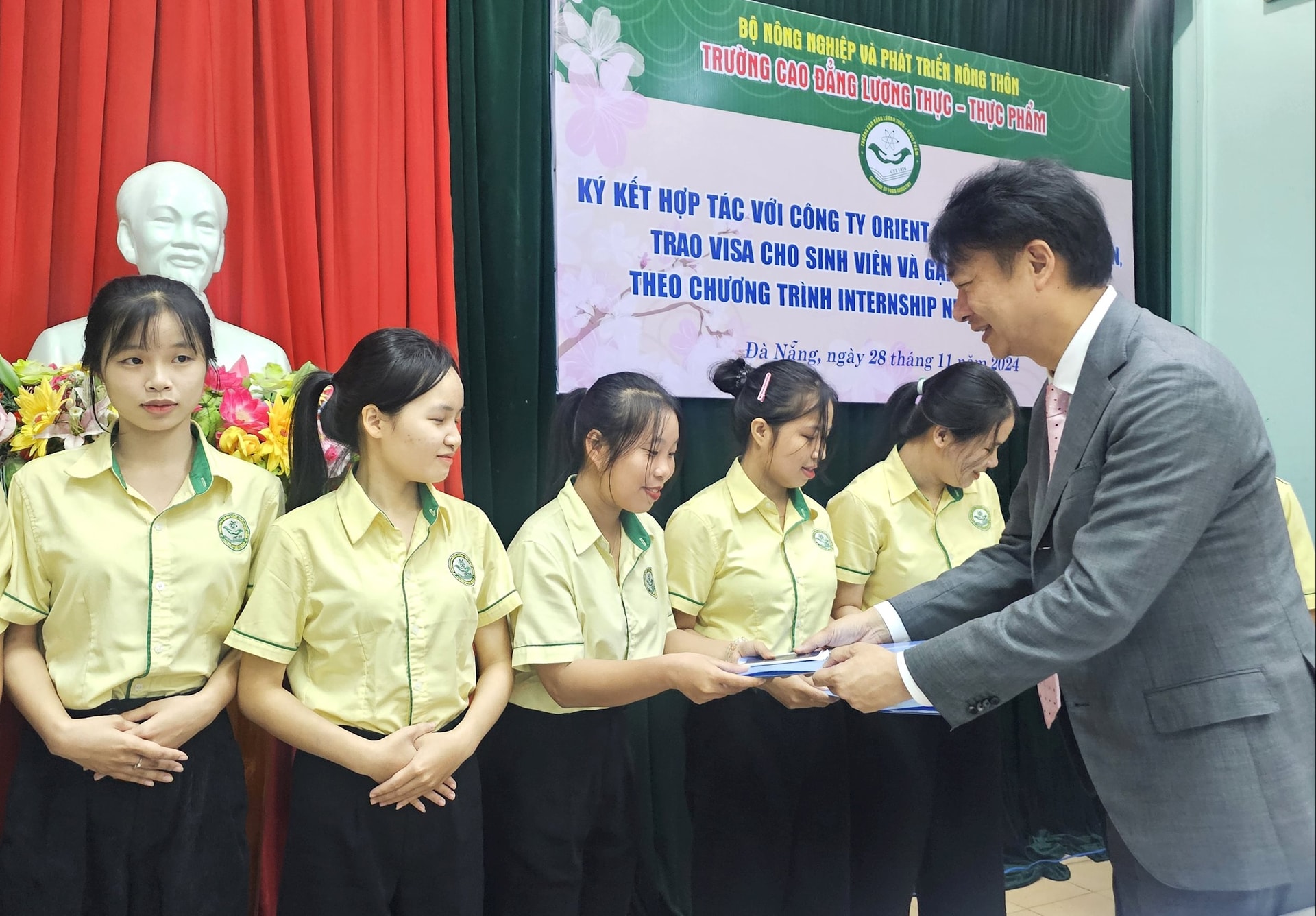
Opportunities for students
After nearly a year of internship in Japan, student Vo Pham Kim Hoa (class 23C2, Food Technology major) has become much more mature and confident. Every day, Hoa works with Japanese colleagues, learning from their experiences, skills, and knowledge of modern food preservation and storage techniques. In addition, Hoa has become familiar with the culture and people there, learning good habits, a sense of responsibility, and a high level of discipline.
According to Tran Hoang Dung, Director of the Admissions and Employment Center at the College of Food and Food Technology, the Japan Internship Program is authorized by the Japanese government , allowing Japanese businesses to accept and employ international students for internships. The aim is to promote cooperation and exchange, and to provide international students with opportunities to learn and develop skills in Japan.

In recent years, the University of Education, Da Nang University, has also strengthened student exchanges with countries in the region and around the world. Duong Bui Vinh (class 22SLS, History Education major, Faculty of History - Geography - Politics ) had a memorable time participating in a student exchange program in Thailand. The two-week internship and experience in the Land of Smiles helped Vinh hone his professional knowledge, increase his understanding, and broaden his international perspective.
According to Nguyen Van Hieu, Vice Rector of the University of Education, on average, the university sends 100-150 students each year to participate in exchange programs, advanced studies, and short-term internships in partner countries. This is an opportunity for students to accumulate knowledge, skills, and international experience; and at the same time, become "young ambassadors" promoting the image of Vietnam and the university to the world .
Strengthening international cooperation
According to representatives from the University of Education, the university has developed numerous joint training and student exchange programs with prestigious universities worldwide. To date, the university has established a wide network of partnerships with over 50 international partners, enabling faculty and students to access new knowledge and advanced, modern educational methods. This cooperation extends beyond academic exchange to internships and job placement, providing students with opportunities to experience an international work environment from an early age.

In the context of globalization, alongside international cooperation, colleges and universities are focusing on developing training programs in foreign languages, especially English, gradually building an international academic environment. A key feature of these programs is the assurance of teaching quality, the updating of modern learning content, and the use of English as the sole or partial language of instruction. Furthermore, the application of active learning methods, project-based learning, and learning linked to research and practice helps students not only acquire specialized knowledge but also develop critical thinking, creativity, communication, and teamwork skills, enhancing their international competitiveness and aiming to become global students.
According to the Director of Da Nang University, Nguyen Ngoc Vu, international cooperation is one of the strategic directions in training and supporting employment for students. To date, Da Nang University has built a wide network of cooperation with more than 250 universities, research institutes, and international organizations.
As the educational and training center of Central and Western Vietnam, Da Nang city is undertaking procedures to request UNESCO's inclusion in the network of "global learning cities" in 2026. According to Mr. Nguyen Ngoc Vu, to soon become a "global learning city," Da Nang needs to build and expand lifelong learning spaces for all citizens, develop an open learning network connecting libraries, cultural centers, museums, and digital platforms so that people can learn anytime, anywhere. In addition, it needs to promote high-quality human resources and a spirit of innovation, linking training with research, entrepreneurship, and digital transformation to turn knowledge into a driving force for socio-economic development.
According to the general consensus of university administrators in the area, to elevate higher education in the new era, Da Nang needs to build a comprehensive ecosystem for international students. This includes not only high-quality classes but also modern dormitories, open cultural spaces, and supportive policies such as scholarships and streamlined legal procedures to attract more international students and solidify its image as a global learning city.
Source: https://baodanang.vn/mo-canh-cua-tri-thuc-moi-3301231.html


![[Photo] General Secretary To Lam working with Ambassadors and Heads of Vietnamese representative offices abroad attending the 14th National Congress of the Party](/_next/image?url=https%3A%2F%2Fvphoto.vietnam.vn%2Fthumb%2F1200x675%2Fvietnam%2Fresource%2FIMAGE%2F2026%2F01%2F25%2F1769334314499_image.jpeg&w=3840&q=75)





































































































Comment (0)